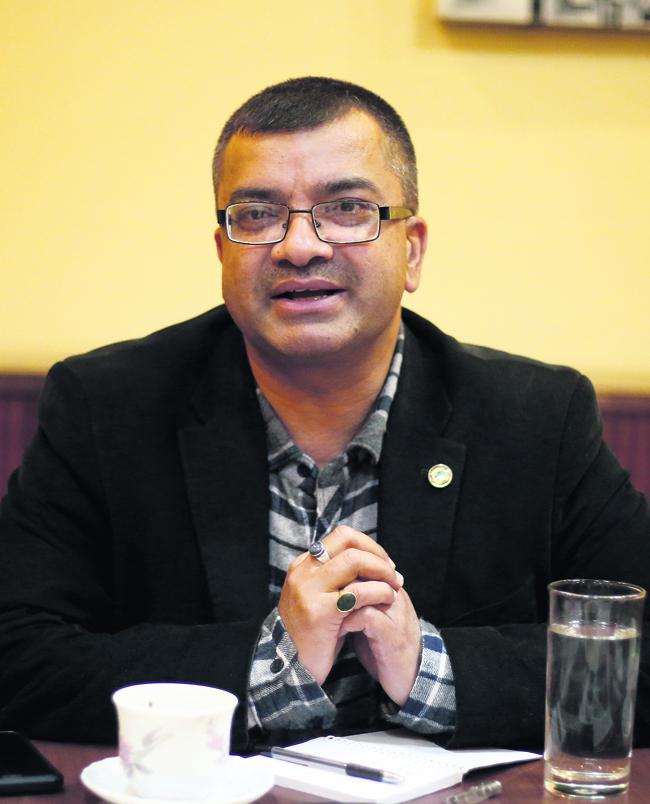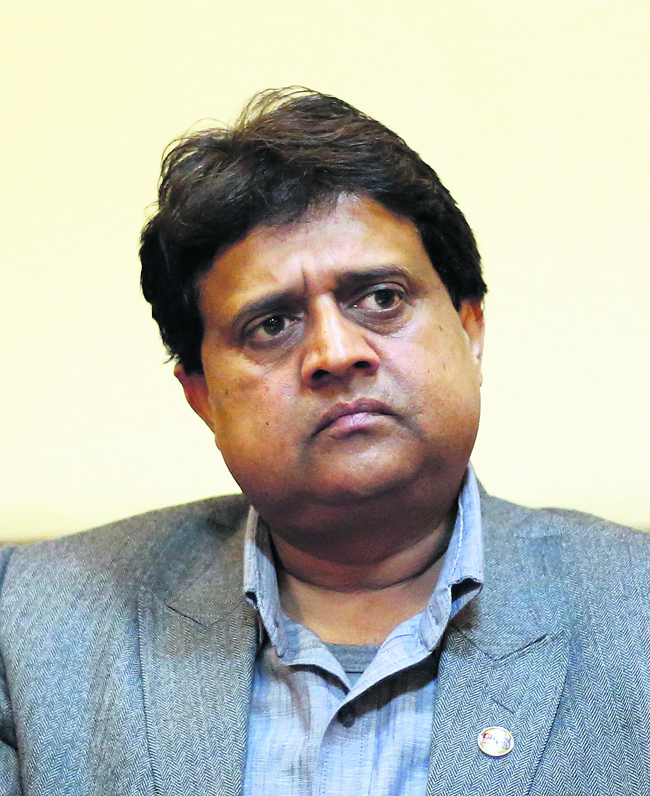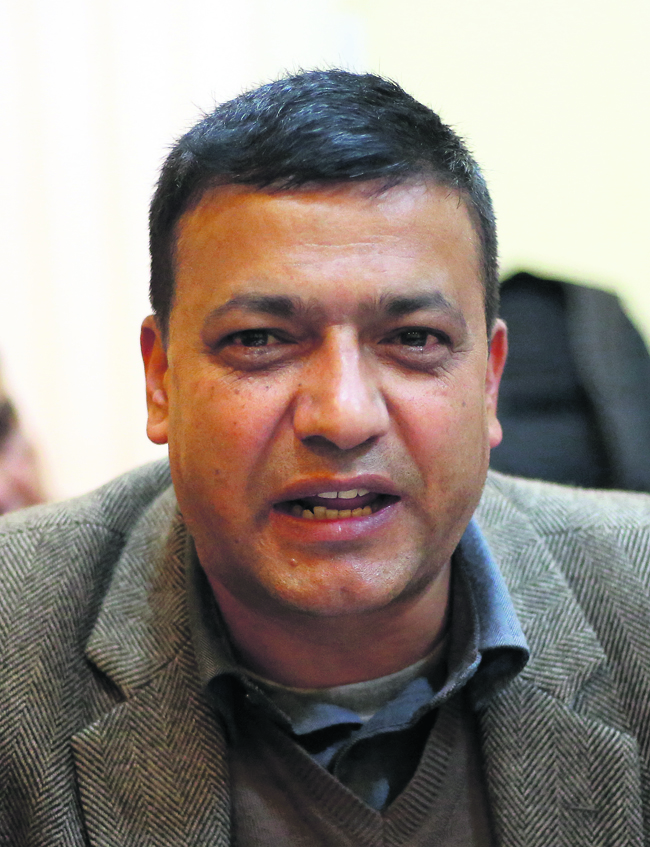KATHMANDU, Jan 26: Leaders of information and communication technology (ICT) business have said that there is a need to effectively implement policies and regulations related to the ICT sector.
While they say that the policies and regulations are up to the mark, the lack of coordination and cooperation among various agencies has been holding back the effective enforcement of those policies. According to them, there is still confusion, and often disputes, on who should implement or which is the focal agency to implement these ICT related policies and regulations which are often interconnected or linked with various ministries and departments. Lack of proper coordination and collaboration between line agencies like Nepal Telecommunications Authority, Ministry of Information and Communications and Ministry of Science and Technology has made it difficult to fully leverage the advantages of ICT into economic development, they say.
There are as much as seven laws and policies governing the development and expansion of the ICT in the country. Nepal Telecommunication Act 1997, Long-term Policy of Information and Communication Sector 2059 (2003), Broadband Policy 2071 and National Information and Communication Technology Policy, 2015, among others, are the acts and policies that govern the ICT sector of the country. “
"Each ministry including education, industry and agriculture, among others, have devised their policies and regulations on ICT. There is a lack of integrated approach to deal with the ICT sector for its holistic grow”h," Binod Dhakal, president of Computer Association of Nepal (CAN) Federation - the umbrella organization of ICT companies, said.
There are many projects and initiatives which have gone unimplemented in the lack of proper coordination and collaboration among government agencie“. "Tele-center in remote villages to increase access to ICT, Rural Telecommunications Development Fund and IT Park are some of the initiatives which have not either gathered momentum or not implemented due to proper coordination among various agenci”s," added Dhakal.
He also underlined a need for a consolidated effort for implementation of policies introduced by various agencie“. "So far, every agency or ministry is moving ahead on their own without taking consideration of another institution's initiative. This is created duplication, confusion and mismatch. There should be a single agency that can consolidate and collaborate with each othe”s," said Dhakal.
Amid growing presence and expansion of the ICT, Republica held a roundtable with the officials of CAN Federation to discuss the issues, problems and possibilities of the ICT sector. Excerpts:
Knowledge-based industry has high potential
Binod Dhakal
President
CAN Federation

We need to take ICT to rural areas. CAN Federation has already launched a campaign to provide ICT services to rural communities as well. We have already expanded our network to 56 of the 75 districts. Our district chapters have been working for the development of ICT sector. Use of ICT is growing, but more at personal level. The use of ICT in public sphere is still very low.
Though different ministries -- education, industry and agriculture -- have devised their own policies and programs on ICT, they lack an integrated approach to deal with the ICT sector for its holistic growth. We introduced tele-center program as a movement throughout the country to increase people's access to ICT. This approach was really practical for countries like Nepal were all people cannot afford computers. They could get benefits from such tele centers. But it was discontinued soon.
CAN Federation wants to launch 'eNepal' campaign that facilitates people to pay their telephone and water bills as well as tax via online payment system from the comfort of their home. It is unfortunate that Rs 8 billion, which is meant to develop ICT sector, is lying idle with Rural Telecommunications Development Fund.
The government is connecting all district headquarters by fiber network which is a very positive development. The government should make sure that it is completed within the stipulated timeframe.
Despite these bottlenecks, we are optimistic about the future of ICT in the country. We need a nodal agency to look after ICT sector. We have immense opportunity in software or knowledge-based industry rather than hardware in which we cannot do anything.
Leaders express differing views on holding local polls

IT not in government's priority yet
Hemanta Chauraisya
Senior Vice President
CAN Federation

It seems that Information Technology (IT) sector is not in government's priority. Though the government has brought few policies for the sector, they are yet to come into implementation. We have been lobbying with the government to give the sector due priority since very long. But state agencies do not realize the importance of this sector.
Information Communication Technology (ICT) has now become an essential commodity in people's everyday life. It is unfortunate that the government is charging 13 percent value added tax on IT equipments which is very high compared to neighboring countries including India. The government is losing huge amount of money in revenue as many IT equipment enter the country through the grey market because of high taxes. We urge the government to bring all unregistered businesses into legal ambit by declaring income tax holiday for a limited period. This will help to bring them into tax net.
IT sector has not only been creating jobs but also making significant contribution to GDP. Conservative estimates put the figures at around 5 percent. Given Nepal's natural beauty and pleasing environment, we can attract big multinational companies to come here by offering them different facilities. ICT giants like CISCO and Microsoft have established offices in countries like Bangladesh which has less favorable climate than ours. It is because Bangladesh has announced ICT program and welcomed foreign investors with a package of income tax holiday until 2022. Use of ICT in service delivery can also help to curb corruption and make a big social change happen.
Govt should implement ICT Policy
Romkant Pandey
Third Vice President
CAN Federation

Nepal is very ahead in Information Communication Technology (ICT) when it comes to policy. We introduced Information Technology (IT) Policy in 2000 and again in 2011. But we failed to implement it both the times. Though the government introduced ICT Policy in 2015, it is not clear yet which government agency will implement it. We still don't know which is the official authority to implement the policy. Our government agencies are focused more on bringing new policies rather than implementing existing policies. While Ministry of Information and Communication has been taking ICT as its responsibility, Ministry of Science and Technology thinks it is a nodal agency to look after ICT. As the sector has become a bone of contention between two ministries, the government should designate a new authority to implement ICT Policy.
The High Level Information Technology Commission, which was established in 2003, has failed to show its impact. We desperately need a designated authority to implement the ICT Policy. We are far behind other countries in terms of ICT because of the delay in implementation of the ICT Policy.
Skilled workforce should be retained in the country
Biswaraj Balami
General Secretary
CAN Federation

The government has introduced good policies for the ICT sector. Unfortunately, they have not been implemented. ICT sector could grow bigger than the biggest industries in the country. But the sector is yet to get due priority from the government. There is a huge demand for ICT among youngsters. The increasing use of smartphone shows how fast the ICT sector is growing. Almost everyone is using Internet. Nepal is ranked 118th among 143 countries in the Asia Pacific region in terms of ICT use which is very positive.
But it is very difficult to compete with other countries in terms of ICT. We always talk about agriculture and tourism for development. ICT sector can also make significant contribution for economic development. But the sector is not getting much priority. We have produced enough human resources for the ICT sector. The government should make policy to retain these trained hands who are flocking to foreign countries in search of better opportunities. If they get opportunity and business doing environment, skilled workforce will stay here and start their own ventures.



































